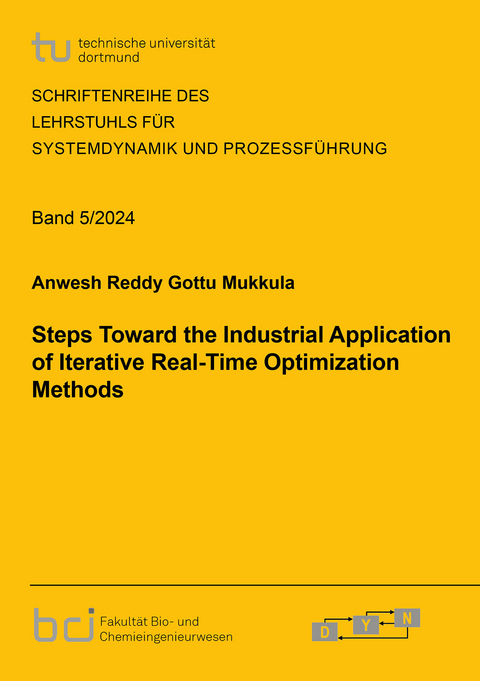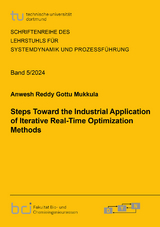Steps Toward the Industrial Application of Iterative Real-Time Optimization Methods
Seiten
Iterative correction of the nominal model-based optimization in Real-Time Optimization (RTO), termed iterative RTO, has become increasingly popular for its ability to compute the optimum despite plant-model mismatch. This thesis focuses on the iterative RTO method “Modifier Adaptation with Quadratic Approximation” (MAWQA). This “Modifier Adaptation” (MA) based iterative RTO method uses steady-state process measurements to compute the process optimum despite plant-model mismatch. The goal is to assess the practicality of using MAWQA in the process industry, identify potential challenges, and resolve them.
In this thesis, practical challenges that arise during optimization with MAWQA are identified by experimental optimization of two processes, one in a pilot plant and another in a modular plant in an industrial environment, in the presence of a plant-model mismatch. It was observed during the experiments that model inadequacy, time delay of process measurements, and lack of convergence cause MAWQA to perform sub-optimal.
Solutions for each of the identified challenges are proposed. A guaranteed model adequacy scheme is proposed to ensure that an adequate model is used for optimization in MAWQA, which is a prerequisite for MA-based iterative RTO methods. Proactive perturbation strategies are proposed to overcome time delay caused by at-line sensors and reduce the duration needed to converge to the optimum. Conditions to detect convergence to process optimum and changes in process behavior are proposed to shut-down and restart MAWQA. The benefits of the proposed solutions are illustrated using simulation studies and experimental implementations.
In this thesis, practical challenges that arise during optimization with MAWQA are identified by experimental optimization of two processes, one in a pilot plant and another in a modular plant in an industrial environment, in the presence of a plant-model mismatch. It was observed during the experiments that model inadequacy, time delay of process measurements, and lack of convergence cause MAWQA to perform sub-optimal.
Solutions for each of the identified challenges are proposed. A guaranteed model adequacy scheme is proposed to ensure that an adequate model is used for optimization in MAWQA, which is a prerequisite for MA-based iterative RTO methods. Proactive perturbation strategies are proposed to overcome time delay caused by at-line sensors and reduce the duration needed to converge to the optimum. Conditions to detect convergence to process optimum and changes in process behavior are proposed to shut-down and restart MAWQA. The benefits of the proposed solutions are illustrated using simulation studies and experimental implementations.
| Erscheinungsdatum | 06.08.2024 |
|---|---|
| Reihe/Serie | Schriftenreihe des Lehrstuhls für Systemdynamik und Prozessführung ; 2024,5 |
| Verlagsort | Düren |
| Sprache | englisch |
| Maße | 148 x 210 mm |
| Gewicht | 300 g |
| Themenwelt | Mathematik / Informatik ► Informatik ► Weitere Themen |
| Schlagworte | Model Adequacy • Modifier Adaptation • Plant-model Mismatch • Process Optimization • real-time optimization |
| ISBN-10 | 3-8440-9599-3 / 3844095993 |
| ISBN-13 | 978-3-8440-9599-9 / 9783844095999 |
| Zustand | Neuware |
| Haben Sie eine Frage zum Produkt? |
Mehr entdecken
aus dem Bereich
aus dem Bereich
eigene Designs erstellen, schneiden und gravieren
Buch (2023)
Hanser, Carl (Verlag)
39,99 €
Digitale Lerninhalte erstellen mit H5P
Buch (2021)
Hanser, Carl (Verlag)
39,99 €




